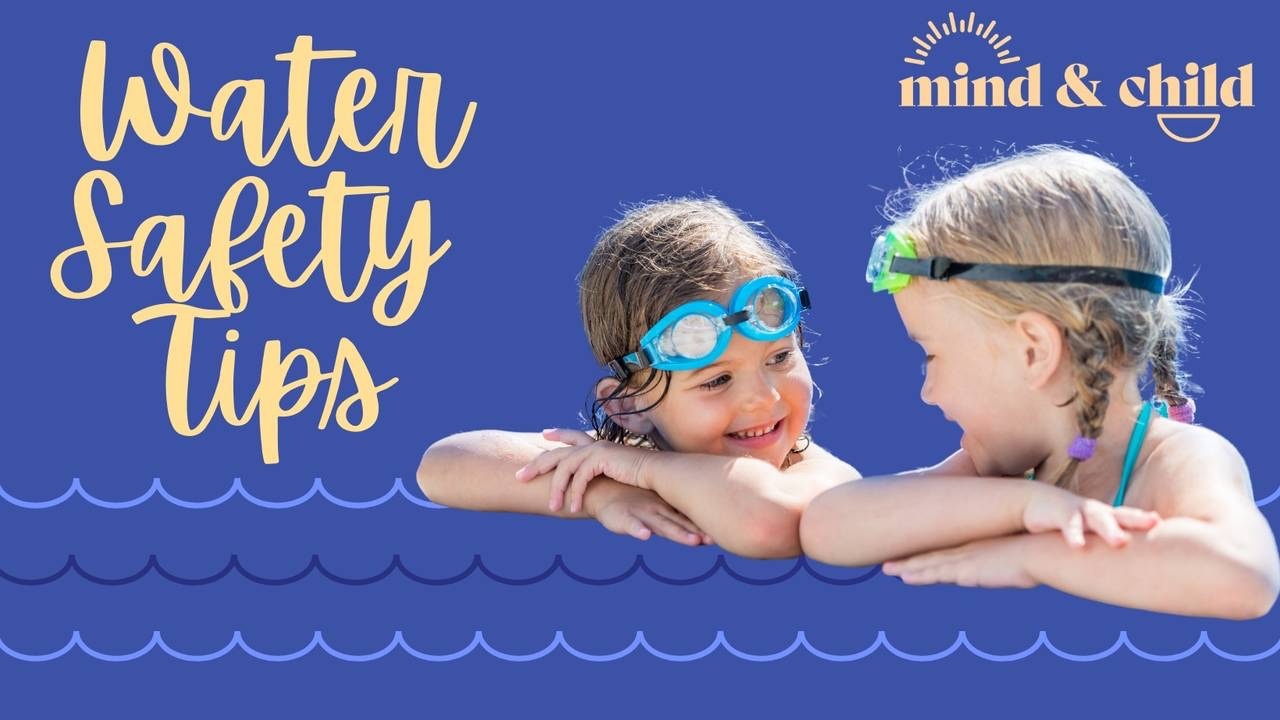Pool Safety: Water Safety Tips
Jun 06, 2022
Erin and I live in Texas, so searching for ways to cool off is a priority in the summer months. Whether its pools, lakes, or just running through the sprinklers, water is a big part of our summer and we are guessing it is for you as well! Locally, there has already been an increase in water fatalities so we want to focus on ways to keep your family safe this summer.
Before even going outside, your children should understand what is expected of their behavior before being around a body of water. This will look different for different age groups, for example, younger children should not go outside near a pool at all without an adult, whereas older children who can swim can go outside and wait for their parent or other adult. As a parent, you should outline clear specifics, that your children understand and practice for water safety. For younger children, an example would be that no body parts (not even toes!) are allowed to touch the water unless someone is watching. Other things to consider would be: life jackets or other safety gear has to be on first, we only use walking feet so we don’t slip and fall, we look before we jump so we don’t hurt anyone, and no rough housing in which we pull people under water.
If you have a pool at your own home, there should be fences, a pool alarm system, and notifications when someone opens the back door to go outside. These are extra layers of safety so that you can act swiftly if needed.
We also need to have all immediate and extended families on the same page that an adult ALWAYS needs to be present around any body of water. If you are at a pool in which there is not a lifeguard, parents should take turns being “on duty.” This is our next important reminder!! Many local organizations and children’s hospitals provide bracelets as a way to show who is “on duty,” but anything can do! Unfortunately, many accidents happen because drowning is quiet and is not always noticed when adults are socializing. When you are supervising, you need to be actively watching all children.
One of the best ways we can be prepared for swimming is to get our children in swim lessons from an early age. You may be asking, when is the best time to start? Great question. The American Academy of Pediatrics recommends children begin between the ages of 1 to 4. While children clearly are NOT able to swim independently at this age, it helps acclimate them to water and teaches parents good water safety habits. Formal swim lessons are recommended after the age of four. However, nothing is as effective as adult supervision! Also, even if your child was an active swimmer last summer, it is likely they haven’t been swimming in many months and may need reminders and practice with their skills.
Unfortunately, sometimes accidents happen. This is our reminder for adults to refresh their CPR skills this summer. You can find a local class near you, or check out Red Cross CPR Training with Red Cross | Red Cross
If you would like to learn more, check out these free resources:
Water Safety for Parents and Caregivers (redcross.org)
We are wishing you and your family a safe summer!
Dr. Jordana and Dr. Erin
P.S., If you haven't already, check out the free video from our course, "Love, Like, Enjoy" here: Watch Free Video from Course
Want more like this? Transform your home with our Parenting 101 Course, and weekly tips from two Child Psychologists.
Stay connected with news and updates!
Join our mailing list to receive the latest news and updates from Mind + Child.
Don't worry, your information will not be shared.
We hate SPAM. We will never sell your information, for any reason.



